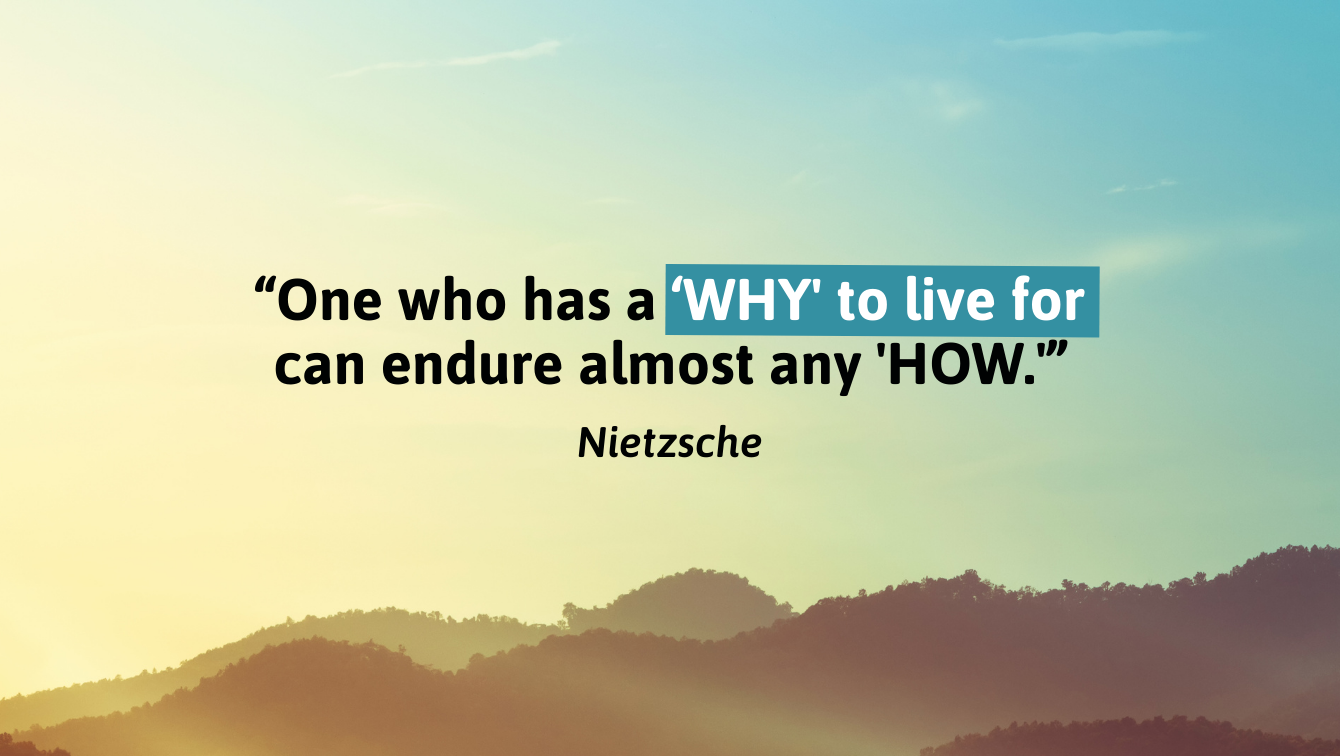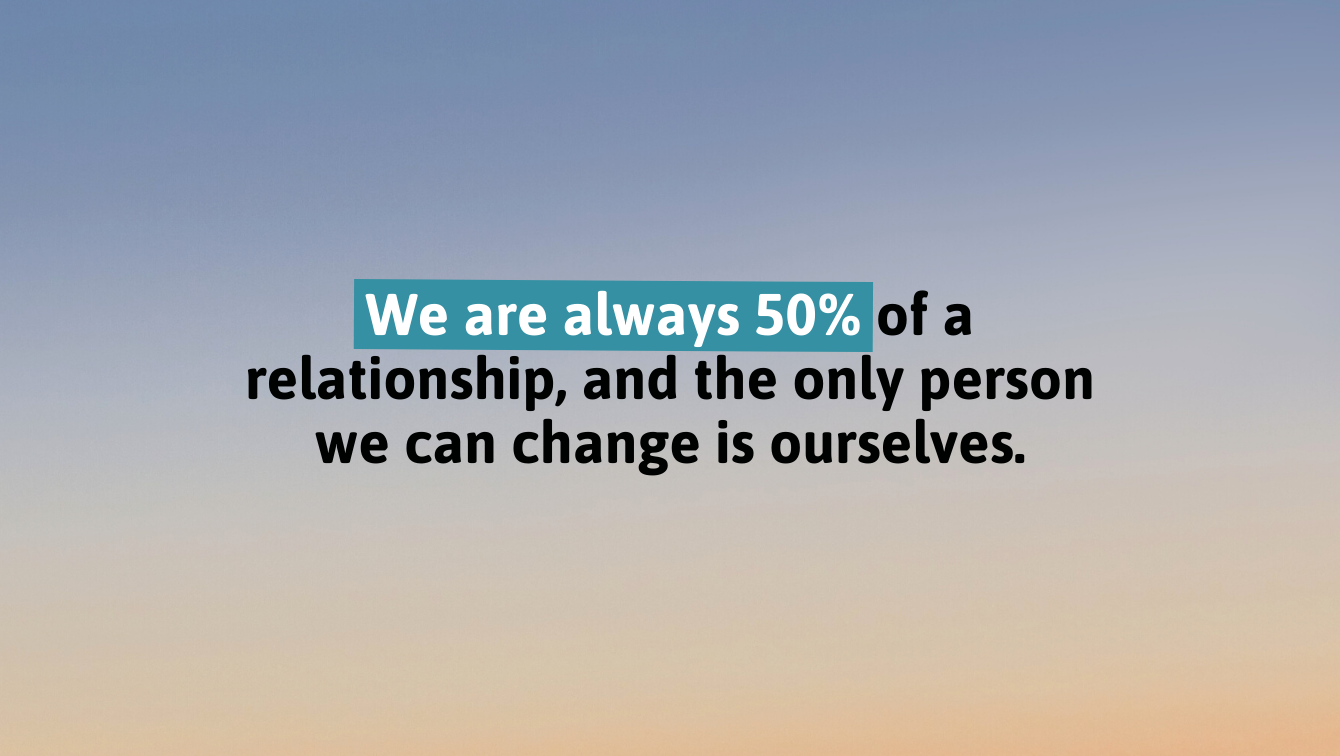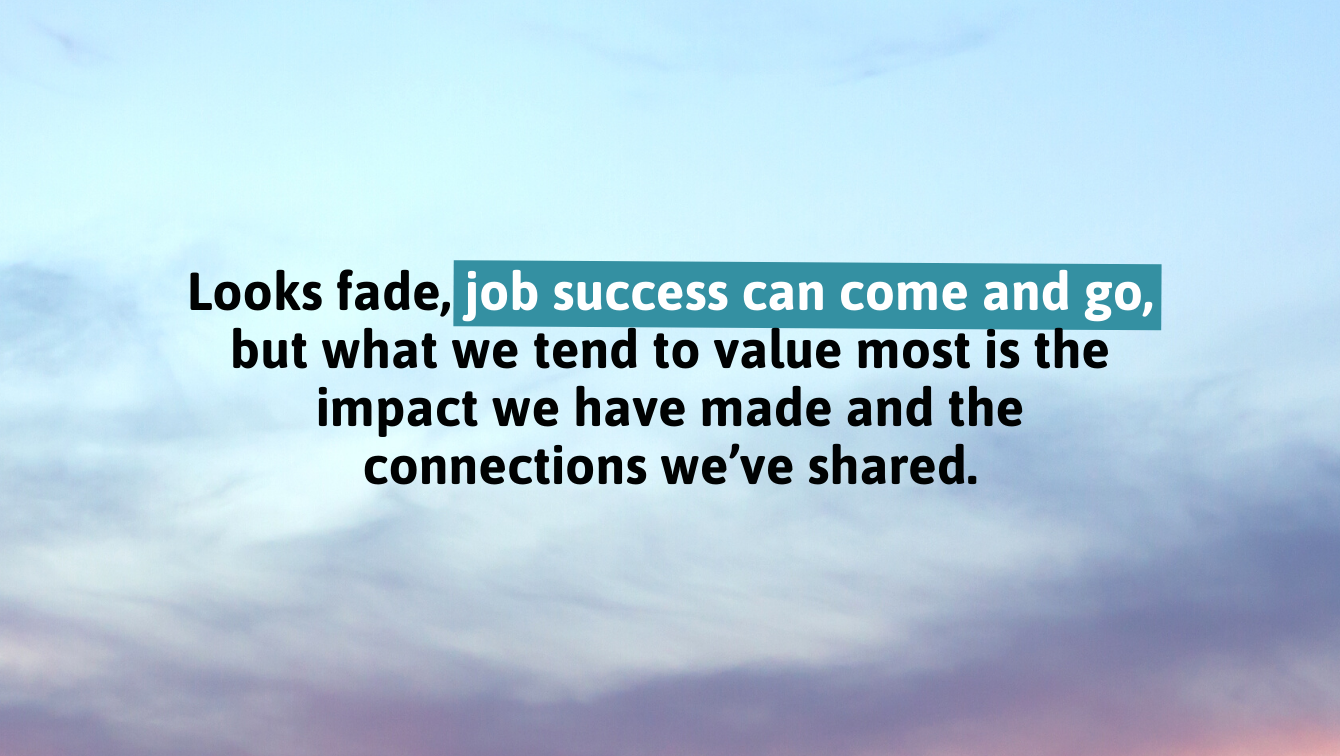When people describe the qualities of others they like to be around, “down-to-earth” is usually one of the first qualities mentioned. Down-to-earth people tend to be easier to be around, and so others gravitate towards them.
We’re not all able to be down-to-earth all the time. That doesn’t have to be a bad thing. But if you would like to be more down-to-earth, there are things you can do. Here are our top tips for being more down-to-earth vs. having your head in the clouds.
How to be more down-to-earth
These are our best tips to help you embody all the qualities that make up a down-to-earth person.
1. Consider why you want to be down-to-earth
Do you want to become more down-to-earth because it’s something you feel that you “should” do, or is it something that you truly believe will improve your life?
If you truly want to become down-to-earth for your own sake, you will be more likely to do so. That’s because what’s known as intrinsic motivation (compared to extrinsic motivation) can be its own reward in changing behavior.
If you’re looking for external rewards to change your behavior, the change is unlikely to keep up if the rewards stop. So if people around you don’t notice and comment on how much more down-to-earth you’ll seem, you’re more likely to get discouraged and revert back to your old behavior.
As Nietzsche said, “One who has a ‘why’ to live for can endure almost any ‘how.’” If you know why you want to change your behavior, it will be easier to do so.

2. Decide which behaviors you’d like to change
Being down-to-earth is not a specific behavior but rather a personality description. Someone who is down-to-earth will tend to have a collection of certain traits and behaviors. For example, they may come across as a positive, happy person who is honest, humble, and a good listener.
When you break down the characteristics that make up being down-to-earth, you’ll find that there are concrete ways you can achieve this.
Make an inventory of your current traits and the traits you would like to change.
After making a list of traits you’d like to work towards, choose one to focus on initially. Then, figure out which steps you can take.
Some of the next tips will help you address specific behaviors that will help you become more down-to-earth.
3. Learn to listen without interrupting
If you can stop interrupting others, you’ll already be well on your way to being a better listener and more down-to-earth.
When someone speaks, are you focused on what they’re saying or planning out what you will say next? Do you assume you know what someone is going to say and end up saying it for them? Or maybe you need to work on your impulse control.
We have a full in-depth guide on how to stop interrupting.
4. Curb your bragging
Bragging and being down-to-earth are polar opposites. Someone who is down-to-earth refrains from bragging and usually won’t even feel the need to do so.
Bragging often comes from a sense of insecurity. By boasting, we try to influence others and get them to see us in a certain way. Of course, this often has the opposite reaction we want, and we can push others away with our bragging.
Practice taking a moment to reframe what you want to say. If someone praises you for a win, for example, you can say “thank you, I feel good about it” instead of “those kinds of things are easy for me.”
For a more in-depth guide, read our article on how to stop bragging.
5. Try to involve yourself in your community
People who are down-to-earth tend to care about the community they live in. They want to make things better, so they get involved in local projects they believe in. Look around your community and ask yourself what issues you care about that you think could be improved. Find out ways you can get involved.
As an extra perk, getting involved in your community is a great way to meet people who share similar interests and values to you.
6. Hold yourself accountable
Take the time to consider your side of the interactions you have. We can often get quite caught up in how we feel someone has wronged us.
We may unintentionally minimize our role in relationships by saying things like “I just don’t know how to pick people” or “I seem to attract certain types of people.”
It’s possible that you’re not so great at picking people to interact with. However, it’s unlikely that it’s the only thing you can improve about yourself.
If someone offers you constructive criticism or says that you did something to upset them, take the time to truly consider their words. You can ask others if they agree with the judgment. Of course, you don’t have to accept everything that others say about you, but consider that it can be difficult for us to see our negative behaviors on occasion.
Remember, we are always 50% of a relationship, and the only person we can change is ourselves.

7. Try to be more humble
You may know that down-to-earth people are considered humble, but how can you humble yourself?
Consider that things you find easy may be difficult for others. Take some time to research how different kinds of privileges influence your life.
For example, maybe you have a well-paying job, and it’s difficult for you to see people complain about living paycheck-to-paycheck.
Telling others that they should stop complaining and get a better job is the opposite of being humble. Sure, you worked hard to get where you are, but there probably were some things that helped you along the way. Someone who has a learning disability or mental illness, for example, may not have had the same opportunities that you did.
Instead, work on being grateful that the skills you have allowed you to find a job where you were compensated fairly.
Pay attention to the things you give weight to. Are you focused on wealth and appearance?
Becoming more humble is a process, and we have an in-depth guide that will help you be more humble.
8. Don’t try to be someone else
A big part of being down-to-earth is being authentic and comfortable in your own skin. In other words, try not to be fake.
It’s tempting to put on a mask when we want others to like us, but if we do so, our relationships will never reach their true depths.
Feeling comfortable with ourselves is a process. One way to become more comfortable with yourself is to practice speaking to yourself as you would speak to a friend.
A simple thing you can do is write down three good things you did for yourself at the end of every day. As you draw attention to your strengths and how you’re showing up for yourself, you’ll start to like yourself more.
9. Don’t compare yourself to others
Comparing ourselves to others is something that we all do. But we often get caught up when we do so. We judge ourselves for not being where others are or feel envious of their position. We compare how we look, our relationship, job, personality…the list goes on.
When we get caught up comparing ourselves to others, we miss focusing on our own journey. We try to figure out others’ truth, wanting it for ourselves. But each of us has our own path in life.
Try to make sure that the main person you compare yourself to is your past self.
10. Do a drama detox
You may have heard that down-to-earth people “aren’t addicted to drama” but are unsure of what that means. Particularly since so many people who say they “hate drama” seem to be surrounded by it!
Avoiding drama means avoiding gossiping and involving yourself in other people’s business. Say you’re part of a group of friends, and one has confided in you that they are breaking up with their partner. Avoid asking your other friends if they heard. Trust that your friends will share what’s going on with them when they are ready.
Steer clear of frenemies: make sure you hang out with people you truly like and feel good in their company.
11. Look beyond the superficial
What qualities do you care about in yourself, your friends, and the people you want to date?
For example, when dating, some people find themselves focusing on their date’s height, job, hobbies, and so on. If you find yourself being put off by such things, it’s worth asking what qualities you truly believe will make a good partnership.
It’s normal to want to be with someone attractive, but it’s worth considering if that truly is the most important thing. Often, attraction grows as we get to know a person.
Or you may find yourself constantly thinking about improving your skin, losing weight, the number of likes and followers you have on social media, etc.
One way to get past this is to imagine yourself towards the end of your life. What do you think will matter to you then? Looks fade, job success can come and go, but what we tend to value most is the impact we have made and the connections we’ve shared.

12. Respect people from all walks of life
Do you find yourself instantly judging certain types of people? It may help to remind yourself that everyone has their own struggle.
Keep in mind that everyone has a story, and we can learn from people who are different from us. If we surround ourselves only with those who share our views, we limit our growth.
13. Accept people for who they are
Being down-to-earth means accepting that people are who they are at any given moment. We can all get caught up in our judgments of how things “should” be, but it’s good to give people grace.
We all have our faults. Accepting our own flaws can help us accept people despite their quirks.
Keep in mind that accepting people doesn’t mean that you have to keep them around. In fact, sometimes accepting the way people are is the first step in removing them from our lives. When we don’t truly accept people, we can find ourselves trying to change them.
However, we can’t make anyone else change. We can sometimes inspire them to change and support them in doing so, but we can’t do it for them or motivate them to do so. Sometimes, accepting the way people are means accepting that they are no longer a good presence in our lives, and it’s better for us to walk away.
14. Live in the moment
Being able to stay in the present is a big part of being down-to-earth. When you’re with other people or in the middle of a project, leave your phone alone.
When you catch yourself overanalyzing, worrying about the future, or beating yourself up over the past, bring yourself back to your current surroundings. Focus on what the person in front of you is saying.
15. Make sure your actions match your words
With a down-to-earth person, you don’t have to guess the meaning behind their words. When they say something, you can trust that it is what they mean. You don’t have to worry that they’re playing games, and you don’t need to check up on them.
If you say you will do something, do it. Don’t commit to things you aren’t sure you’ll be able to do.
16. Let go of resentment
Sometimes we get caught up in our anger and resentment. When we over-give and don’t receive back what we expected to or when people have crossed our boundaries, we can find ourselves dealing with a whole lot of messy feelings.
Remember that you have agency. If you feel that you’re being treated unfairly in a relationship, you have options, even when it doesn’t feel like it. Working with a therapist on boundary setting and effective communication can help you improve your relationships and let go of lingering resentment in your life.
Common questions
What is a down-to-earth person like?
A down-to-earth person usually feels easy to be around. They seem genuinely kind, have a good attitude, can admit mistakes, are present when they are around others, and have common sense. They aren’t pushy, big-headed, or demanding.
How do you know if you are down to earth?
If people tell you that you’re down-to-earth, that’s a good sign. You can look at traits that encompass being down-to-earth and work on making those a priority in your life. Don’t let your pride get the best of you, and continue to strive to be the best person you can be.
Why is it important to be down to earth in life?
Being down-to-earth will likely help you build better relationships. By staying authentic and focusing on the things that really matter, you’re more likely to be content in life.
How do you stay down to earth in a relationship?
Stay down-to-earth by reminding yourself to consider the other person’s opinion. When you communicate, stick to “I” statements rather than blaming the other person. Listen without interrupting, and stay accountable for your own growth.



Great post, it was today that I searched for this topic for the first time because I had a thought about something I want to accomplish.